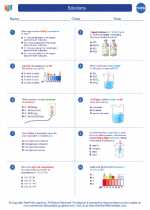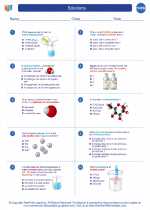Groundwater
Groundwater is the water that is found beneath the Earth's surface in the spaces between soil particles and rocks. It is stored in and moves through the pores and fractures of underground geological formations. Groundwater is a vital natural resource that supplies drinking water to a significant portion of the world's population and supports various ecosystems.
Formation of Groundwater
Groundwater is formed through the process of infiltration, where precipitation, such as rain or snow, percolates through the soil and permeable rocks, eventually reaching the water table. The water table is the level below which the ground is saturated with water. At this point, the water becomes groundwater and can move through the subsurface layers under the influence of gravity.
Properties of Groundwater
Groundwater shares some properties with surface water, but it also has distinct characteristics due to its subsurface location. It tends to have a stable temperature and is less susceptible to pollution and evaporation compared to surface water bodies. Additionally, groundwater can contain dissolved minerals and gases acquired from the surrounding geological formations, which can influence its properties and suitability for various uses.
Importance and Uses of Groundwater
Groundwater plays a crucial role in sustaining ecosystems, supporting agriculture, and providing a reliable source of drinking water. It is often accessed through wells and springs, and its use extends to industrial processes, irrigation, and as a coolant in various applications. However, over-extraction and contamination of groundwater pose significant challenges to its sustainable management and availability for future generations.
Study Guide
When studying groundwater, it is important to grasp the following key concepts:
- The hydrological cycle and the role of groundwater in it
- Factors influencing groundwater movement and storage
- Methods of groundwater exploration and extraction
- Groundwater quality and its implications for human and environmental health
- The impact of human activities on groundwater resources and potential solutions for sustainable usage
Additionally, familiarizing oneself with the relevant terminology, such as aquifers, recharge zones, and hydraulic conductivity, is essential for a comprehensive understanding of groundwater dynamics and management.
Studying groundwater also involves practical aspects, such as conducting field investigations, analyzing hydrogeological maps, and understanding the principles of groundwater flow and contamination remediation.
By mastering these concepts and skills, students can gain a thorough understanding of groundwater and its significance in the context of environmental science, hydrology, and sustainable water resource management.
Overall, groundwater is a complex and essential component of the Earth's hydrological system, and studying it provides valuable insights into the interconnectedness of geological, environmental, and societal factors.



